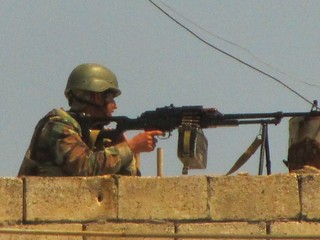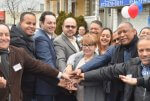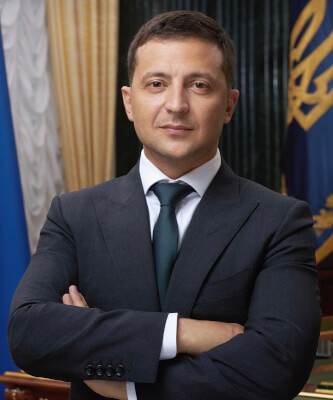Syria women face dangers, International Rescue Committee report warns
As conflict in Syria approaches fourth year, the IRC highlights figures that show the dangers women and girls are facing – from hazardous births to forced marriage

· In 2014 alone the IRC estimates that 22,550 refugee or displaced Syrian women will give birth and nearly 3,400 will suffer miscarriage or have a stillbirth, uncertain if or when they will receive appropriate medical attention. The IRC estimates at least 19,000 refugee or displaced Syrian girls will experience their first menstrual period in a similarly unfamiliar environment this year.
· In an assessment by the IRC and other agencies, 75 percent of the women and girls participating in Jordan said they felt the place where they were living was unsafe. 59 percent of women said that their lack of privacy put them at risk of sexual assault.
· 83 percent of women surveyed during an interagency assessment in Jordan said they would not know where to go to get help if they were physically or sexually abused. When women in such circumstances do come forward, they risk honor killings or banishment from families and communities.
· Women who spoke to the IRC in Jordan reported domestic violence, sexual assault, and having to push their daughters into marriage in order to survive amid economic hardship – last year close to 30 percent of women reporting violence were victims of physical assault by someone they knew. And almost 20 percent of cases involved forced marriage of both adult women and adolescent girls.
· In Jordan, the United Nations High Commissioner for Refugees has found that widows and female heads of households frequently fail to register for assistance unless accompanied by a male relative. Yet only 20 percent of refugees in Jordan are adult males, most of whom are away during the day searching for work, making registration virtually impossible.
Click here to read the online report
Quotes from women and girls who cannot be identified for security reasons:
· One Syrian woman in Za’atari camp told an IRC staff member that she wondered if she “should have stayed in Syria to die.”
· A 14-year-old Syrian girl in Lebanon told the IRC that one good thing about our center is that she feels “less angry” after spending time there.
You can read more about the challenges for women and girls in a new update from the IRC available here.
David Miliband, IRC president and CEO said:
“The threat of unspeakable violence and cruelty is a daily reality for women and girls who are fleeing from their homes in Syria. We know that in these emergency situations women are more likely to be raped, girls more likely to be forced into marriage, partners more likely to be violent, routine medical practices more likely to go wrong. Women can be forced into prostitution because their partners have been killed or recruited into militias and there isn’t enough money for their families to survive. This is the unspoken story of the Syria crisis. For three years now the world has turned its back on Syrian women and girls – we cannot allow another three.”
Miliband also earlier called for humanitarian envoys to be appointed by key governments responding to the Syria crisis:
“There is need for what have in the past been called Humanitarian Envoys… each permanent member of the Security Council, and others concerned with the crisis, [should] appoint a full-time Humanitarian Envoy. They would need to be people of genuine stature with seasoned global diplomatic credibility – former Ministers and UN or other Ambassadors. And they would need the personal mandate of the head of government. But it needs that kind of focused attention to achieve some kind of breakthrough.”
Heidi Lehmann, Senior Director of the IRC’s Women’s Protections & Empowerment Unit, said:
“The humanitarian community needs to urgently rethink how it’s meeting the needs of women and girls in the Syrian crisis. Women and girls report feeling uninformed, invisible and worse than that, unsafe inside and outside their homes. The IRC supports 16 Women & Girls Centers in the region including 4 in Za’atari camp. For those women that can’t reach the centers IRC has mobile teams that go to the women and girls. These centers serve up 4,000 women and girls a month. Once they are safely inside and trust is built, women and girls begin to disclose their experiences of war, and the physical or sexual violence they have experienced. There is a desperate need for more services and prevention efforts to prevent further damage. We cannot afford another emergency response, like Pakistan, where women and girls were not accessing aid during the 2010 flood response.”
Media Contacts:
Oliver Money (New York)
Oliver.Money@rescue.org
Paul Donohoe (London)
Paul.Donohoe@rescue-uk.org
About the International Rescue Committee:
A global leader in humanitarian assistance for nearly 80 years, the IRC works in more than 40 countries offering help and hope to refugees and others uprooted by disaster, conflict and oppression. During crises, IRC teams provide health care, shelter, and clean water, sanitation, learning programs for children and special aid for women. As emergencies subside, the IRC stays to revive livelihoods and help shattered communities recover and rebuild. The IRC also helps resettle refugees given sanctuary in the United States. A tireless advocate for the most vulnerable, the IRC is committed to restoring hope, dignity and opportunity. Visit www.rescue.org for more information.
Related articles


- Israelisnipers shooting and killing hospital workers in Gaza - December 11, 2023
- CAIR Condemns Israeli Executions of Wounded, Unarmed Palestinian in West Bank - December 11, 2023
- Arab and Muslim American voters face a “simple choice” between Biden’s inhumanity and Trump’s edgy politics - December 9, 2023

























